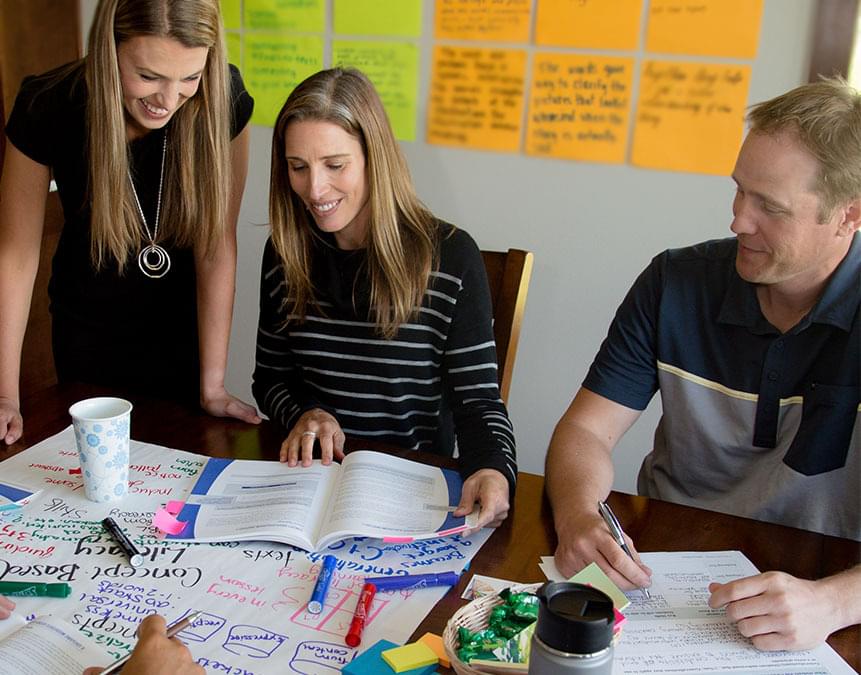
Registrations Close In:
----- Online Course for Literacy and World Language Educators -----
Foundations of Concept-Based Literacy and Language
The Ultimate Guide to Leveraging the Power of Concepts in the Classroom
for K-12 Literacy and World Language Teachers

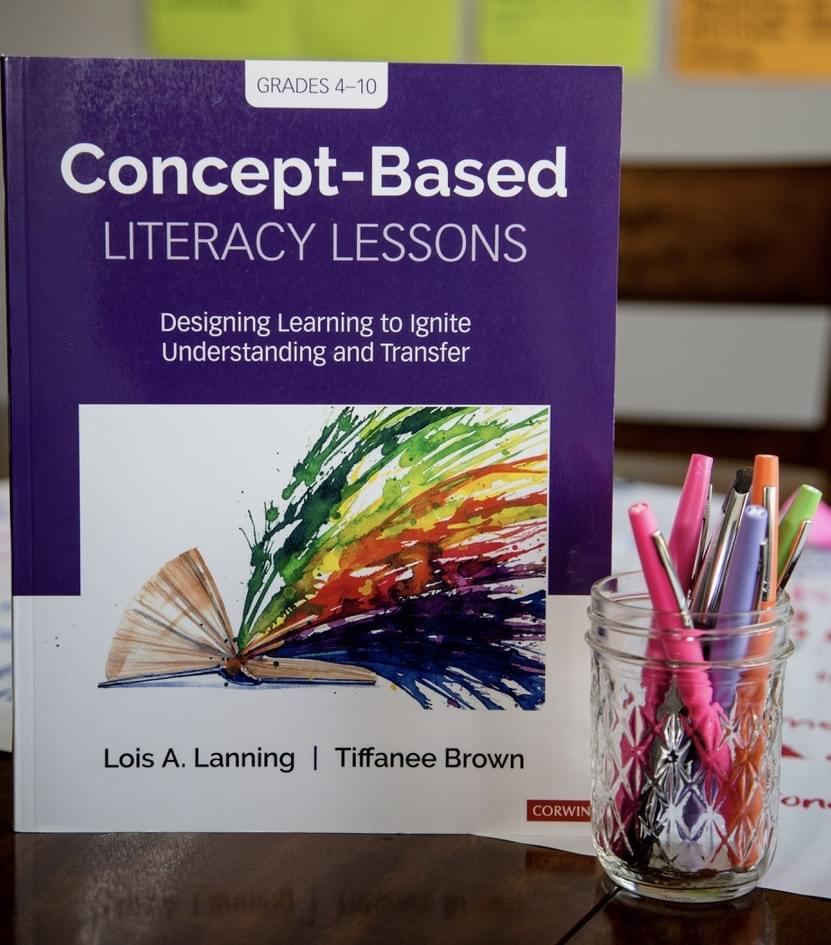
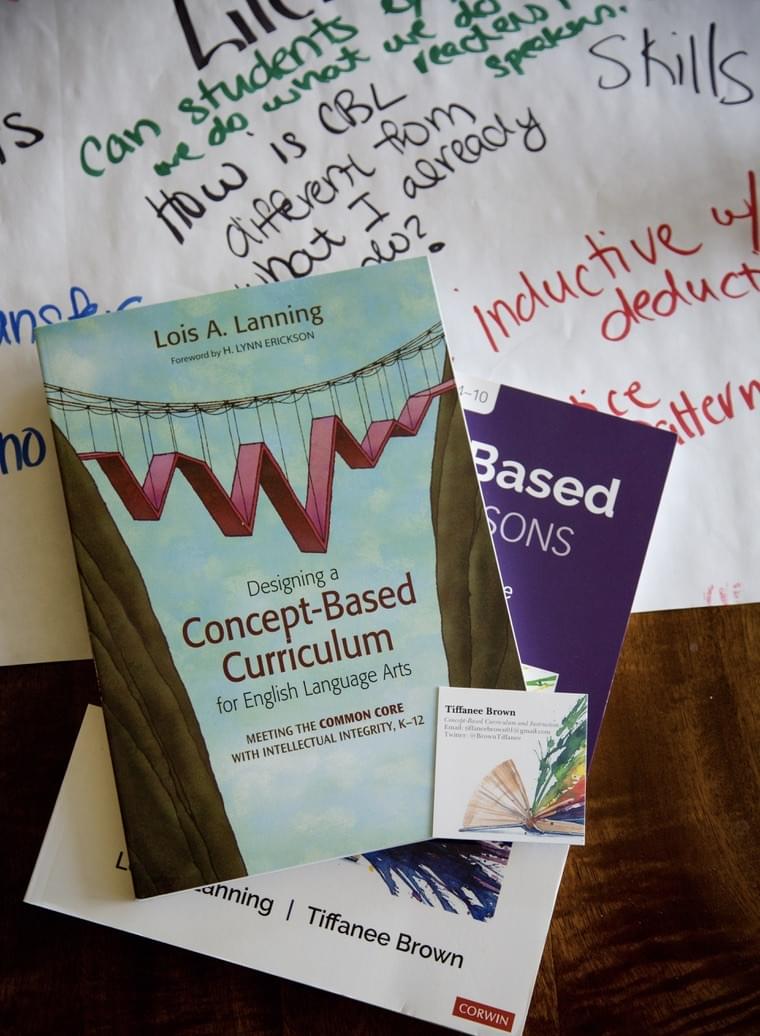
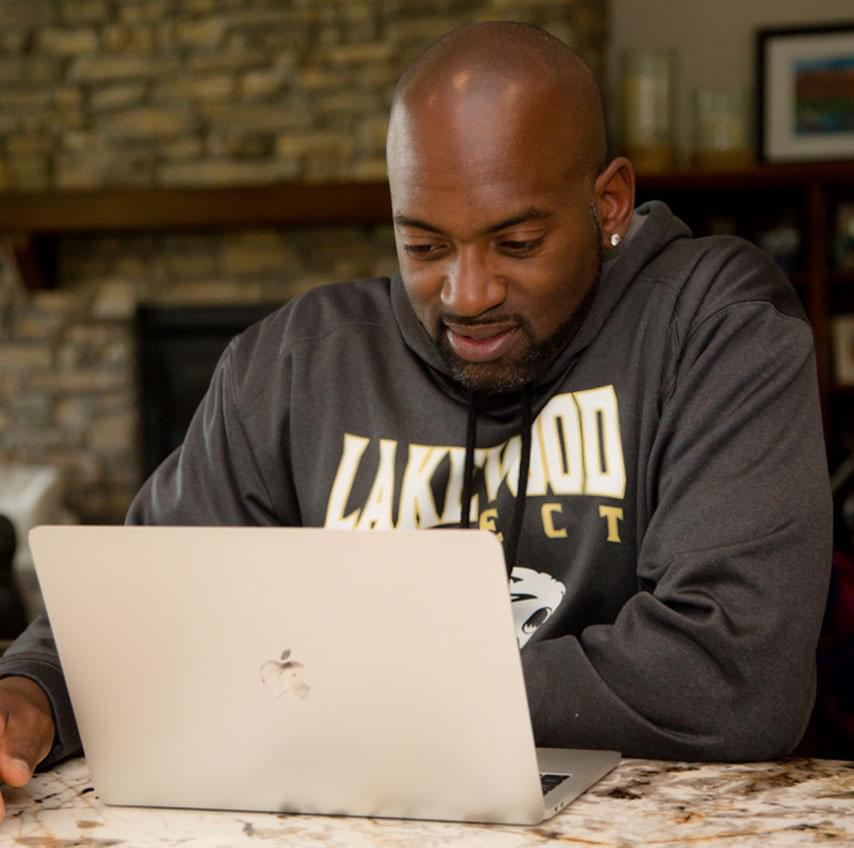

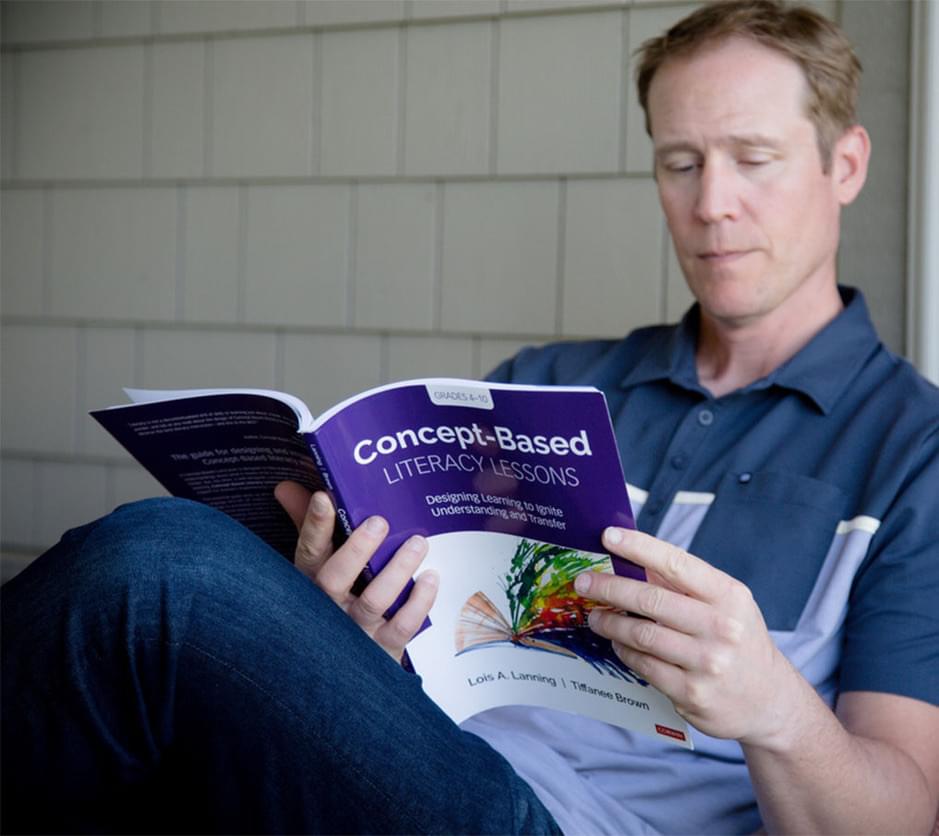
From the Desk of Tiffanee Brown Seattle, United States
Dear Fellow Literacy or World Language Educator,
Do you feel that you’re the best literacy teacher you can be?
I know that’s a big question, but you have such an important opportunity to make an impact, to help your students deeply understand literacy, share their ideas, and engage as members of our global community.
Are you maximizing your students' potential as thinkers, creators, and communicators in your elementary or secondary school classroom?
By teaching literacy or world languages in a way that leverages your students' thinking and meaning-making, you have an opportunity to design units and lessons that move beyond skills to develop transferable conceptual understanding.
How would you like to hear your students saying things like this:
“Learning… is fun but it is also serious. It gets us ready for the future.” — 7th grade student
“Everyone is allowed to have their own thoughts about what we are learning. We get to share our ideas with classmates, which helps us understand our work more.” — 8th grade student
“Overall... [this] class was really influential to me as a reader and writer.” — 8th grade student
This is Concept-Based Literacy in action.
Teachers from around the world have been asking for a way to learn to use Concept-Based Literacy, without having to take valuable time away from the classroom or traveling to my international workshops. And in response, I’ve created an interactive six-week online course with self-paced modules and live coaching sessions that fully prepares you to teach through a Concept-Based Literacy approach!
I’m very excited to invite you to join me virtually for the online course Designing Concept-Based Literacy Lessons.
Introductions First

Hello there, I’m Tiffanee Brown. I’m a certified Concept-Based Curriculum and Instruction Presenter and Trainer, experienced educator, thought partner to teachers around the world, and co-author of Concept-Based Literacy Lessons: Designing Learning to Ignite Understanding and Transfer. I hold a National Board Certification in English Language Arts and an MS in Special Education.
I'm passionate about supporting other teachers as they refine their craft to design high-quality, conceptual units and lessons that provoke thinking, facilitate inquiry, and ultimately, result in deep, transferable literacy learning for our students.
Driven by this mission, I lead international Concept-Based Literacy workshops that prepare teachers with practical strategies to get started right away.
Teachers from around the world have been asking for a way to learn more about Concept-Based Literacy in a virtual setting, so that they don't have to take valuable time away from the classroom.
And in response...
I’ve created an interactive six-week online course with self-paced modules and live coaching sessions that fully prepares you to teach through a Concept-Based Literacy approach!
I’m very excited to invite you to join me virtually for my course Foundations of Concept-Based Literacy!
It will take place over six weeks starting April 10th, 2023.
This course is for all elementary school teachers and secondary school literature, language arts, and world language teachers.
So How Did This All Begin?
About seven years into teaching literacy, I honestly didn’t feel that I was the best educator I could be.
I was putting a lot of heart and planning into every lesson, I’d earned a masters and numerous endorsements, and my students were consistently scoring well above the average on our standardized writing assessment.
But somehow, I still felt that something was missing. I worried that I wasn’t teaching to my students’ learning potential, or guiding them to really access the true power of literacy.
I began to research and experiment with different approaches, and that’s when I discovered the Concept-Based work of Dr. Lynn Erickson and Dr. Lois Lanning.
It was a total “aha moment.” This was the missing piece in my teaching!
Despite the fact that it was midyear, I decided to design and implement my first Concept-Based literacy unit. And even though that first attempt was far from perfect, the outcome was unbelievable.
The quotes I shared above are exactly what my students told me at the end of the year. They also said:
“In the past, it was about having good grades but now it is about learning the true meaning of things.” — 8th grade student
“[Before] we only really asked questions to the teacher and that would be it. But now we have whole class periods devoted to just asking other students questions and trying to figure things out together.”— 8th grade student
And I even got this:
“It is more fun. You actually want to go to school.” — 8th grade student
What teacher doesn’t want to hear that?
I was seeing the power of conceptual teaching firsthand, and from that moment in time, I’ve never looked back.
That was only the beginning...
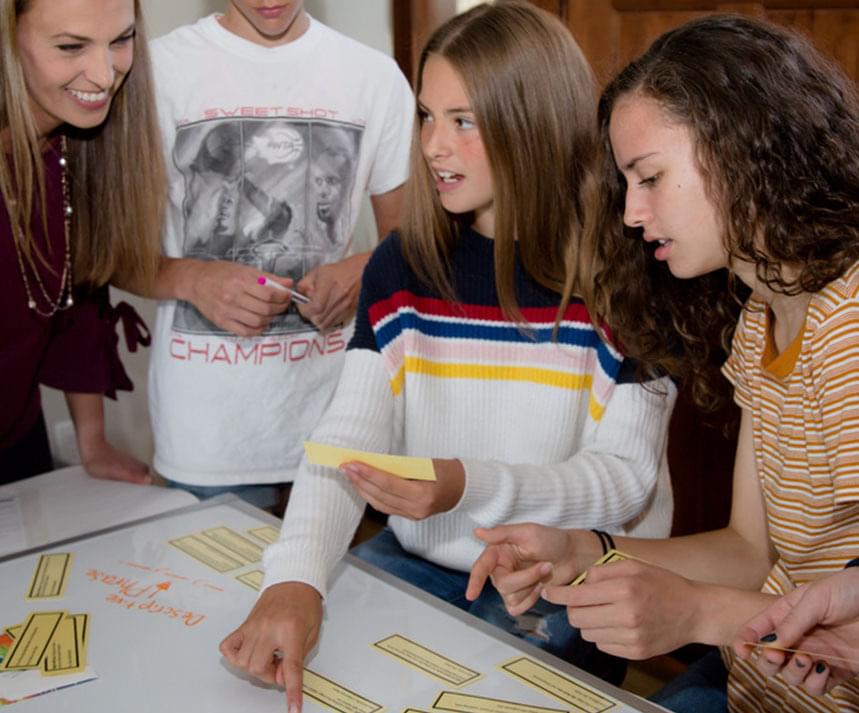
Now, I’m Committed to Sharing this Powerful Approach with Teachers Around the World
After implementing the Concept-Based approach in my classroom, I became passionate about helping other teachers learn to use it, too.
I went on to co-author Concept-Based Literacy Lessons: Designing Learning to Ignite Understanding and Transfer with Dr. Lanning herself, and I began leading international workshops for literacy and world language teachers from all over the world.
When I started to explore this area, I found that many literacy resources do not actually show you how to design units and lessons to systematically support the conceptual understanding and learning transfer.
The how-to remains a mystery, or left up to you to try to figure out on your own — and this can be a very time consuming and frustrating process.
That’s why my passion is to help educators like you turn Concept-Based Literacy theory into actionable practice through time-saving tips, resources, examples, and shoulder-to-shoulder collaboration.
You will complete this course ready to bring Concept-Based Literacy to life in your classroom.
The Concept-Based Literacy Course That Will
Transform Your Classroom
Foundations of Concept-Based Literacy is for educators like you who are looking for a literacy model that is more inquiry-driven and idea-centered.
Through highly practical and engaging professional learning that transforms theory into a regular part of classroom practice, educators are prepared to immediately apply the Concept-Based Literacy approach in their classrooms.
In this six-week online course, you will experience video modules, a book study, group coaching, and an individual coaching session to review the unit you have designed.
Just like I had that "aha moment," this course may create a paradigm shift for you, too. Concept-Based Literacy really does require you to think differently about how you approach your role as a literacy or world language teacher, and how you engage students in learning.
We will work on this together, using specific, step-by-step frameworks and plenty of examples. You'll even have the opportunity to observe me and two of my colleagues plan a lesson from start to finish, showing you how the principles are applied at each step so that you can translate them easily to your planning process.
We will also get really practical with it. You’ll work on developing your first Concept-Based Literacy unit and lesson and have an opportunity to troubleshoot and refine these with other teachers and myself. We will do this in our live sessions.
At the end of the course, you will be ready to teach the lesson from the unit you’ve created and realize the power of this approach in the classroom.
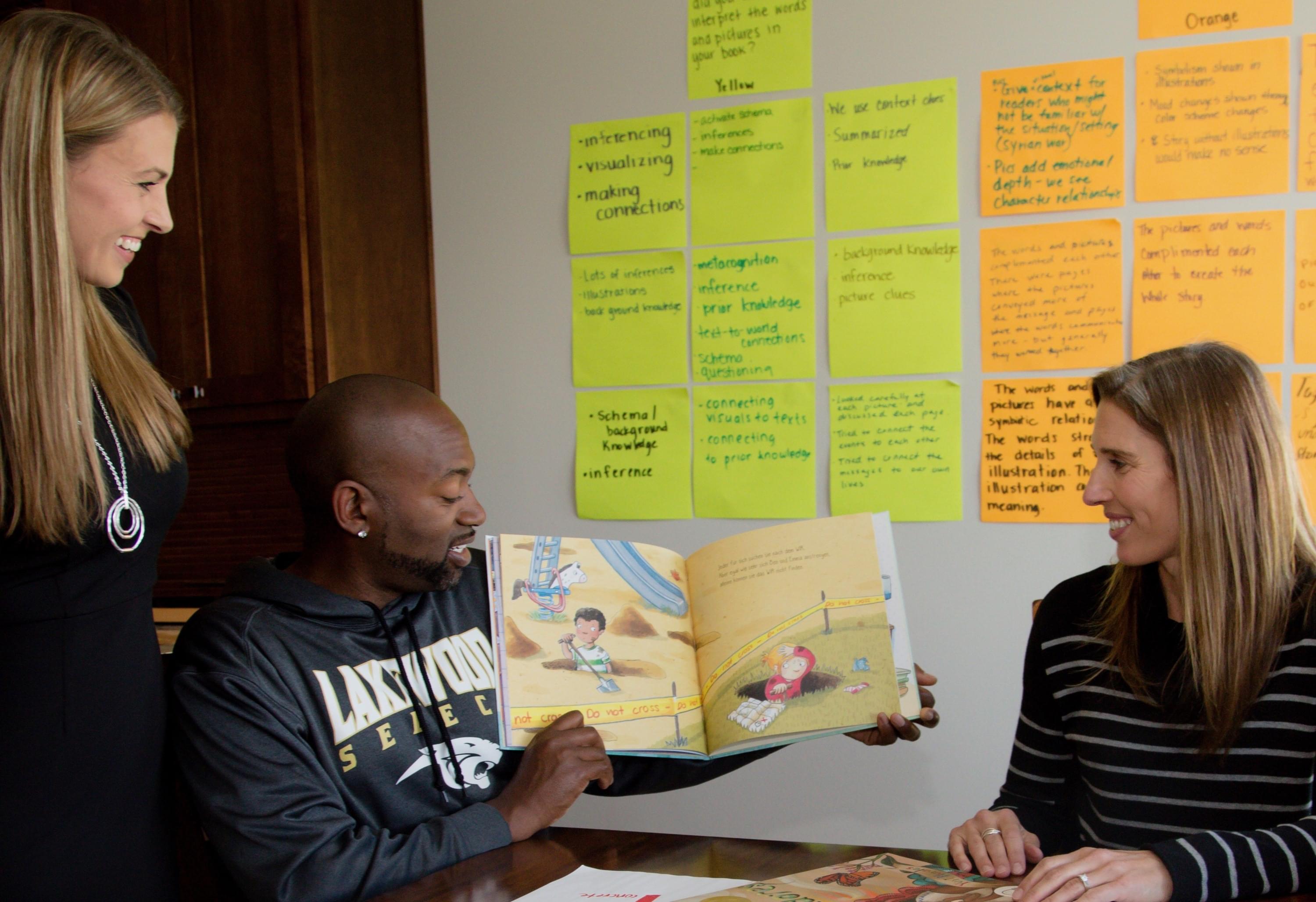
Presenting... Our Course Curriculum
Foundations of Concept-Based Literacy will take place virtually over a period of six weeks starting on April 10th, 2023.
Each week, you will gain access to a new video module and supporting resources. This coursework will take you about two hours per week to complete.
Then, we’ll meet for a weekly, hour-long group coaching call, where we’ll answer questions and provide you with an opportunity to collaborate with your colleagues.
To accommodate everyone, we’ll schedule these Zoom calls in two time zones, and we’ll record the calls for anyone who can’t attend. These discussions are such valuable opportunities for dialogue, and I want to make sure that they are available to everyone.
After week six, you will have an opportunity to schedule an individual coaching session. During this time, you'll get specific feedback on your unit and lesson plan — and get them ready to go for your classroom!
Here is what’s included in each module.
Module 1: Why Concept-Based Literacy (Week 1)
This first module will ground you in some of the key differences between two-dimensional skill-based and three-dimensional Concept-Based Literacy. You will also learn where concepts are drawn from in literacy and world language. We’ll discuss...
What is three-dimensional Concept-Based Literacy? What does it actually look like?
How can you move learning beyond skills to develop conceptual understanding that transfers?
Module 2: Getting Started with Unit Planning (Week 2)
This module gets us starting with the unit planning process. We will take a big picture look to think about your master plan for the year, and then we will jump in and start designing a unit plan. You will learn how to use a Process Web to organize your unit, and you will learn how to write generalizations (or statements of conceptual understanding) that extend the development of skills and strategies. We’ll explore questions like...
How do we craft process-driven generalizations?
How can you leverage conceptual specificity so that students develop disciplinary expertise as they move through the grade levels?
Module 3: Guiding Questions, Knowledge, and Skills (Week 3)
In this module, you will consider the power of questions in your classroom. This includes how to craft guiding questions to scaffold student thinking toward the target generalization. You will also learn the role of critical content and key skills in your Concept-Based unit. As you move through the unit planning steps, you will continue to build your unit for your own classroom. We will look at...
What is the role of guiding questions in our literacy lessons?
How can facts and skills serve as the foundation for developing a deeper, transferable conceptual understanding?
Module 4: Assessment and Student Reflection (Week 4)
In this module, we will learn about designing assessments of understanding. We will look at the role of student self-reflection, as well as gathering evidence of understanding. We will discuss questions like...
What is an assessment of understanding?
How can we transform two-dimensional assessments into three-dimensional assessments of understanding?
How can we promote student reflection and self-assessment?
How can you use craft reports to guide students to construct and articulate conceptual understandings that reflect the transferable ideas represented in their work?
Module 5: Designing Learning Experiences (Week 5)
In this in-depth module, you will continue your unit design with a focus on learning experiences. Together, we will explore the power of inductive learning in literacy and world language, and you will apply this approach in your unit plan. We will also explore questions like...
How does Concept-Based literacy and language promote opportunities for student choice, and allow students to bring themselves, their identity, and their thinking to the study?
How can you help students become responsible for the thinking, cognitive work, or meaning-making in our lessons?
How do you balance explicit teaching and inductive inquiry?
What role do familiar instructional techniques play in our Concept-Based classrooms?
Module 6: Concept-Based Lesson Planning (Week 6)
In this final module, you will learn how to move from an instructional unit to a lesson plan that guides classroom instruction. We will take a deep look at the lesson planning process, and you will design a lesson plan drawn from the unit you just created. We will explore questions such as…
What characteristics of learning are we striving for in our lesson plans?
How can we use model lesson plans as tools for our own professional growth?
As a learning aid for this course, all participants will also receive a digital copy of the Concept-Based Literacy book that I co-authored with Dr. Lois Lanning, Concept-Based Literacy Lessons: Designing Learning to Ignite Understanding and Transfer (Lanning and Brown, Corwin, 2019).
We will draw on resources from this book throughout the course, using some of the model lesson plans, model units, and classroom snapshots as tools for reflection and inspiration for the units and lessons that you will design. The examples and resources in this book will continue to serve as a valuable reference as you design future Concept-Based Literacy and Language units and lessons for your classroom.
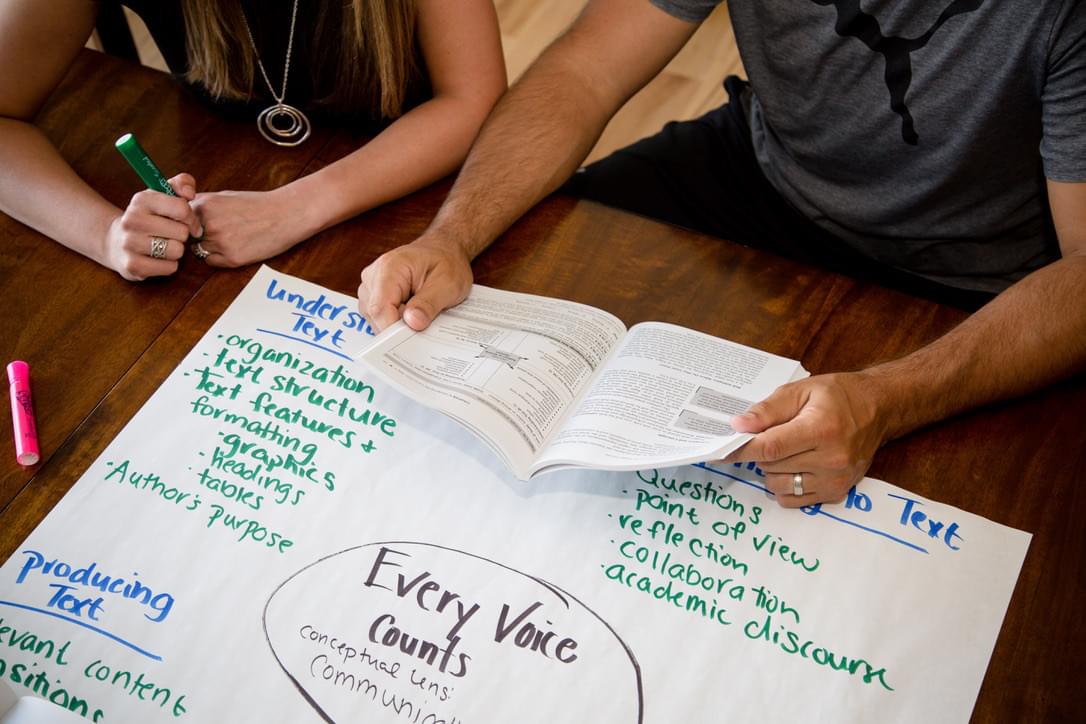
This Course Will Transform Your Approach to Teaching Literacy
In addition to designing your own Concept-Based Literacy unit and lesson plan, here is what you can expect to gain from the course. As a teacher you will:
- Come away with a crystal clear picture of what Concept-Based Literacy looks like so you feel inspired and empowered to begin experimenting with this approach in your classroom
- Gain greater confidence in working with concepts and leading your students to construct their own conceptual understanding
- Be prepared to design units and lessons that develop knowledge, skills, and conceptual understanding simultaneously, which provides the foundation for learning transfer
- Learn to leverage the literacy practices you are already using and take them one step further to develop conceptual understanding
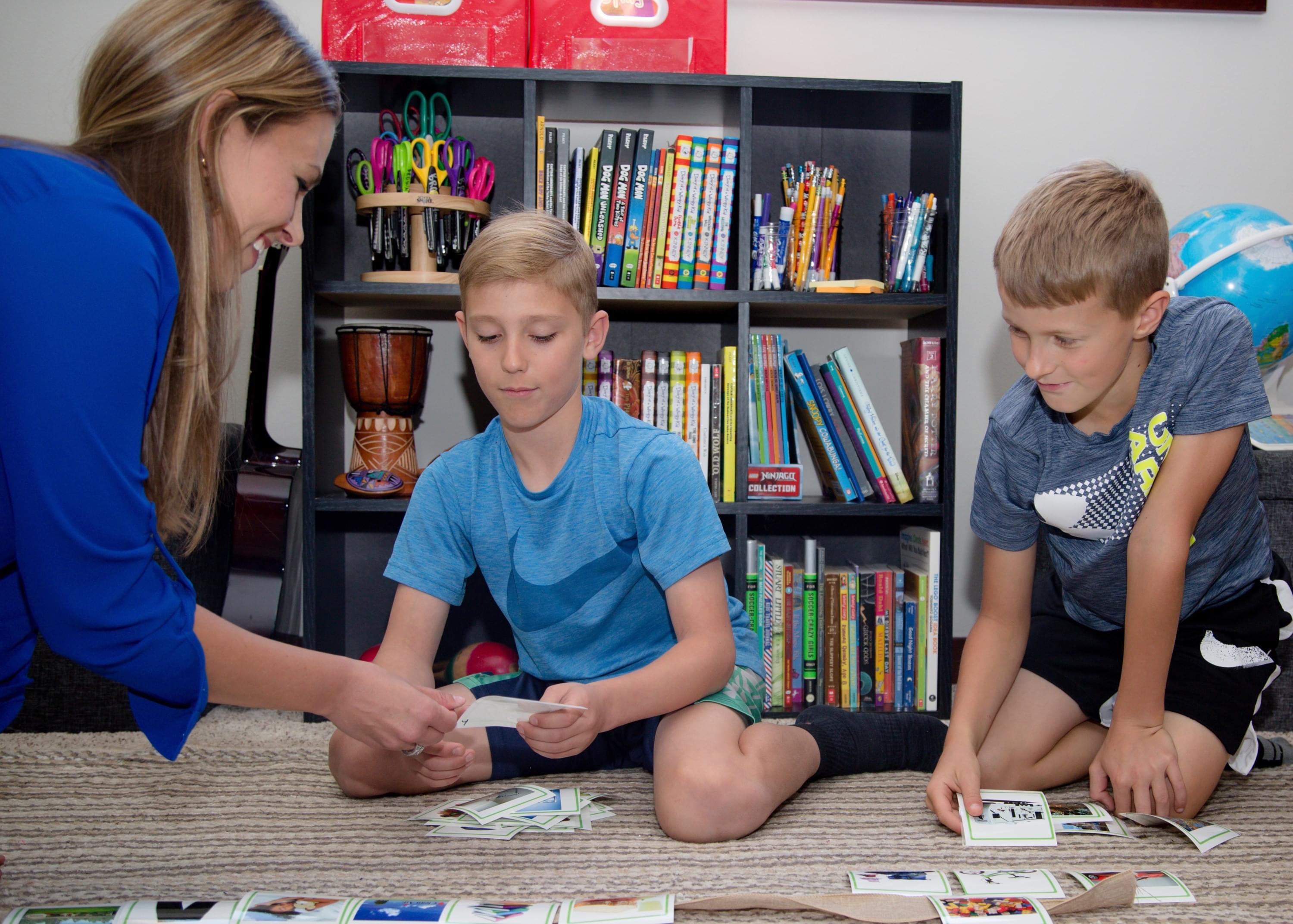
Your students and their literacy learning are at the heart of this. And Concept-Based Literacy is an amazing way to support and empower them. Your students will:
- Feel that they are valued as thinkers — it feels good to use your mind well!
- Love the opportunities for choice in what they read and the types of texts they produce
- Develop the mental models and conceptual schema needed to retrieve what they’ve learned when they are making sense of new contexts
- Be able to transform factual examples into abstract conceptual ideas
- Be able to explain the choices they made while engaged in a process and explain why those choices are effective
- Transfer learning across multiple types of literacy materials and genres, and to their lives outside of school
- Move from doing to understanding why we do what we do as readers, writers, speakers, and listeners
When you sign up for Foundations of Concept-Based Literacy, you’ll be covered by our 14-day 100% money-back guarantee.
This means that if you decide, in the first two weeks, that the course isn’t delivering on the value you expected, you can get a full refund. No questions asked.
I have no problem offering this because like I said, I’ve worked so hard to pack this course with valuable material and practical guidance that will prepare you to immediately bring Concept-Based Literacy into your classroom.
I am confident that it will be transformative for your teaching and your students’ learning. But you can decide for yourself, and it’s risk-free.
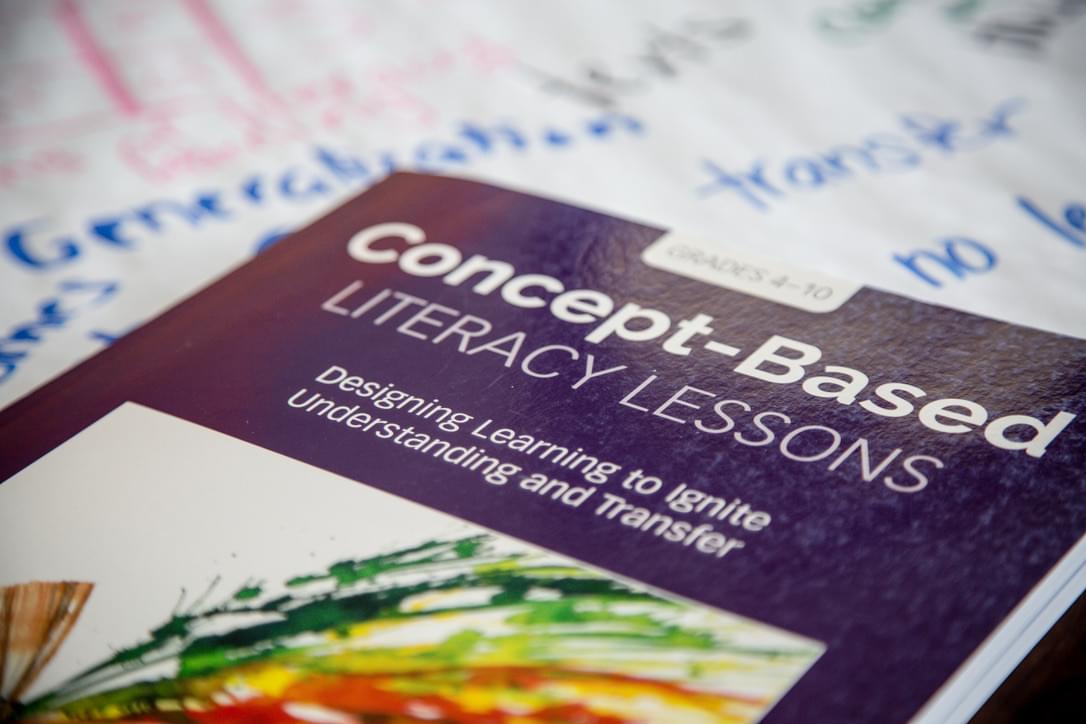
Still Trying to Figure Out if This Course is For You?
If you’ve read this far, you’re probably pretty interested in Concept-Based Literacy and what this course will do for your teaching.
But just in case, let me be up front and tell you whom this course may not resonate with. My Foundations of Concept-Based Literacy course is not for educators who:
- Are looking to adopt a pre-designed program with scripted lesson plans
- Believe that there is so much to cover that there is no time to pause for student reflection
- Aren’t ready to give your students the agency to make choices about what they read or what they write
But if you believe student choice and personal relevance are critical to developing lifelong love of literacy, and you are ready to increase student thinking by guiding students to take the lead in meaning-making... then you will get so much out of this course.
When you enroll in the course you will get...
When you enroll in Foundations of Concept-Based Literacy, here’s what you’ll be getting:
- Six weeks of carefully designed learning modules, including video lessons (Value: €600)
- Weekly group coaching calls, offered in two times zones (Value: €1000)
- A 45-minute private coaching session to receive personalized feedback on a unit and a lesson that you’ve designed for your own classroom (Value: €400)
- Digital copy of Concept-Based Literacy Lessons: Designing Learning to Ignite Understanding and Transfer (Lanning and Brown, Corwin, 2019) (Value: €25)
If purchased individually, these items would total over €2000, but when you enroll in Designing Concept-Based Literacy Lessons, you will receive everything listed for just €650.
For school groups of 20 or more teachers, please write to admin@prolearnint.com for special discounted rates.
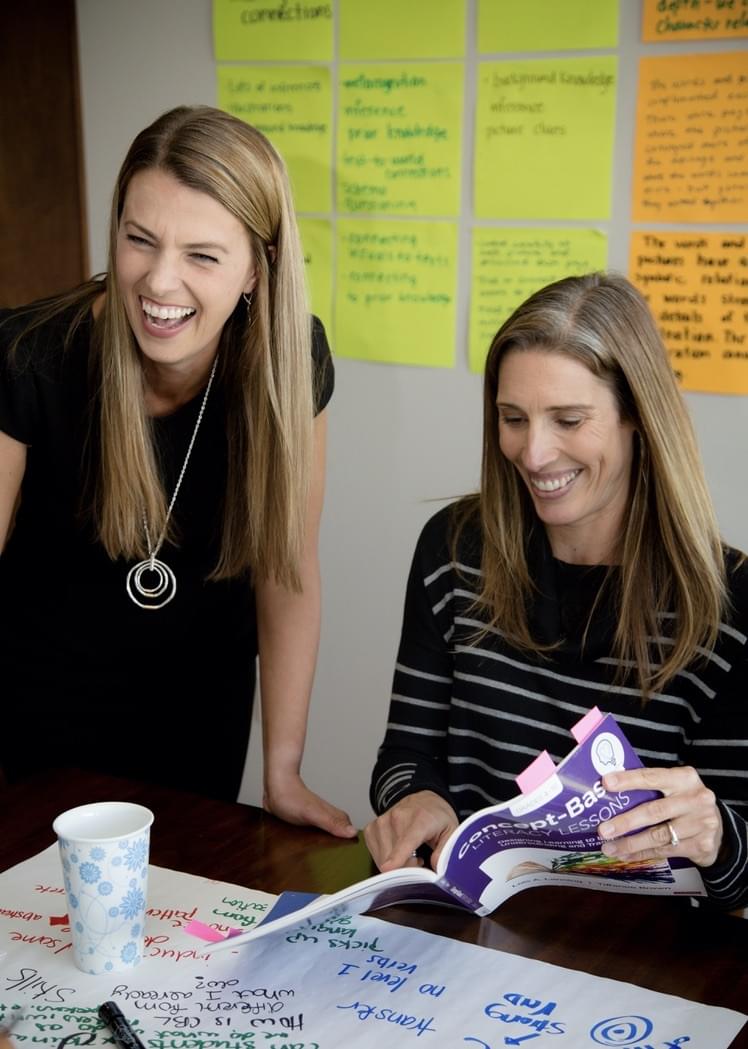
Ready to Be the Best Literacy or World Language Teacher for Your Students?
If you are ready to make literacy learning more dynamic and holistic, leverage student agency and meaning-making, and guide your students to develop transferable conceptual understanding that they will value for years to come… let’s do this together.
Click below to register for the Foundations of Concept-Based Literacy course. I’m so excited to share this with you, work with you, and support you along the way.
Warm Regards,
Tiffanee Brown
P.S. That Was a Lot of Information, So Let’s Review!
I invite you to join me virtually for my Foundations of Concept-Based Literacy course, which starts April 10th, 2023!
Concept-Based Literacy is a literacy model that is more inquiry-driven and idea-centered, focused on helping your students construct their own transferable, conceptual understanding.
If you believe that student choice and personal relevance are critical to developing lifelong love of literacy, and if you are ready to increase student thinking by guiding students to take the lead in meaning-making... this is for you.
In this six-week online course, you will experience video modules, a book study, group coaching, and an individual coaching session to review the unit and lesson you have designed.
Together, we will build a foundation for Concept-Based Literacy through specific, step-by-step frameworks and plenty of examples. Then, you will work on developing your first Concept-Based Literacy unit and a lesson drawn from it and have an opportunity to troubleshoot and refine it with other teachers and myself.
The cost of the course is €650 per teacher, and also we have multiple teacher and whole school discounts available.
Concept-Based Literacy has the potential to transform your classroom, and I am so excited to show you how in this course.
With any questions, please reach out to me at contact@tiffaneebrown.com.
One more thing! If the date of this course does not fit with your schedule, please email admin@prolearnint.com to register your interest for future offerings. We will be in touch when we have that on the calendar.
